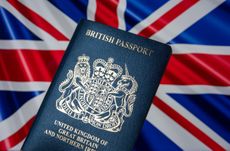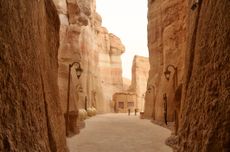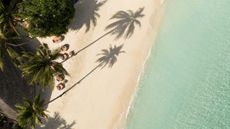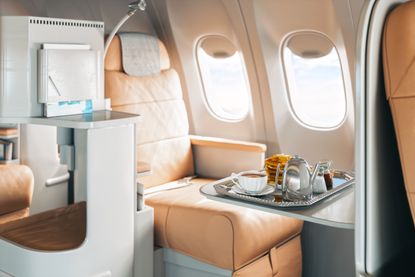Spending it
The latest news, updates and opinions on Spending it from the expert team here at MoneyWeek
Explore Spending it
-

UK passport renewal: cost, how long it takes – all you need to know
Travel The UK passport renewal process became more expensive in 2025. Here’s everything you need to know about the changes to ensure your trip runs smoothly
By Oojal Dhanjal Last updated
Travel -

Adventures in Saudi Arabia
Travel The kingdom of Saudi Arabia in the Middle East is rich in undiscovered natural beauty. Get there before everybody else does, says Merryn Somerset Webb
By Merryn Somerset Webb Published
Travel -

8 of the best houses for sale for around £500,000
The best houses for sale for around £500,000 – from a navigable 1920s Dutch barge on a marina in Isleworth, London, to a basement apartment in Clifton, Bristol
By Natasha Langan Last updated
-

Review: Constance Moofushi and Halaveli – respite in the Maldives
Travel The Constance resorts of Moofushi and Halaveli on two idyllic islands in the Maldives offer two wonderful ways to unwind
By Ruth Emery Published
Travel -

Best cards for travel abroad
Advice We weigh up the best cards for travel, whether you’re going on holiday or you go abroad regularly
By Oojal Dhanjal Last updated
Advice -

8 of the best houses for sale with libraries
The best houses for sale with libraries – from a country house in Surrey with a circular library, to a house in Pembrokeshire with custom-made bookshelves
By Natasha Langan Last updated
-

Affordable Art Fair: The art fair for beginners
Chris Carter talks to the Affordable Art Fair’s Hugo Barclay about how to start collecting art, the dos and don’ts, and more
By Chris Carter Published
-

Review: Luxury hotel Gundari in the Greek island Folegandros
Nicole García Mérida stayed at Gundari, a luxurious hotel on Folegandros, one of the lesser-known islands in the southern Cyclades in Greece
By Nicole García Mérida Published
-

8 of the best properties for sale for around £1 million
The best properties for sale for around £1 million – from a Grade II-listed, 18th-century house in Northumberland to a period property in Hertfordshire
By Natasha Langan Last updated
